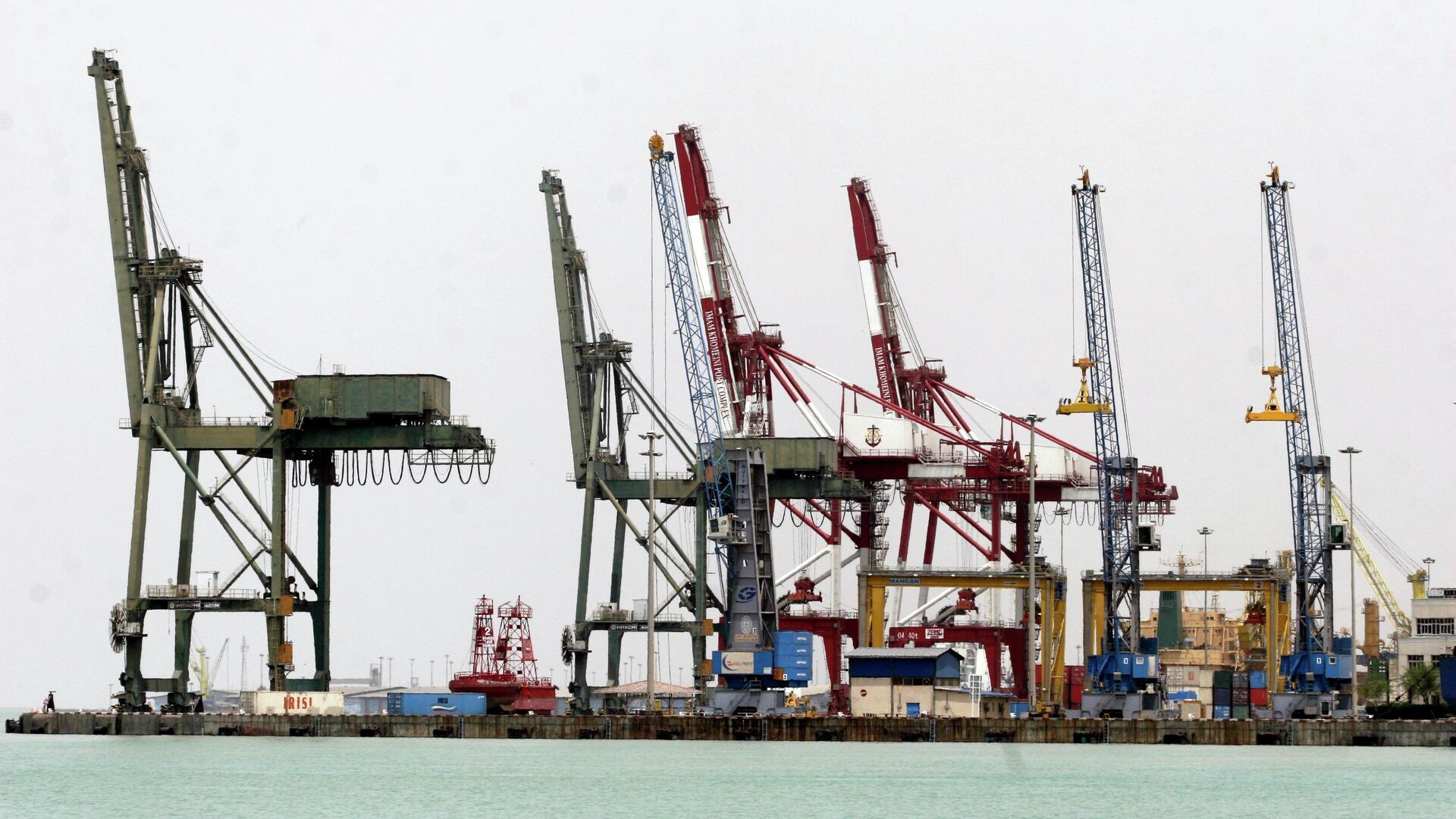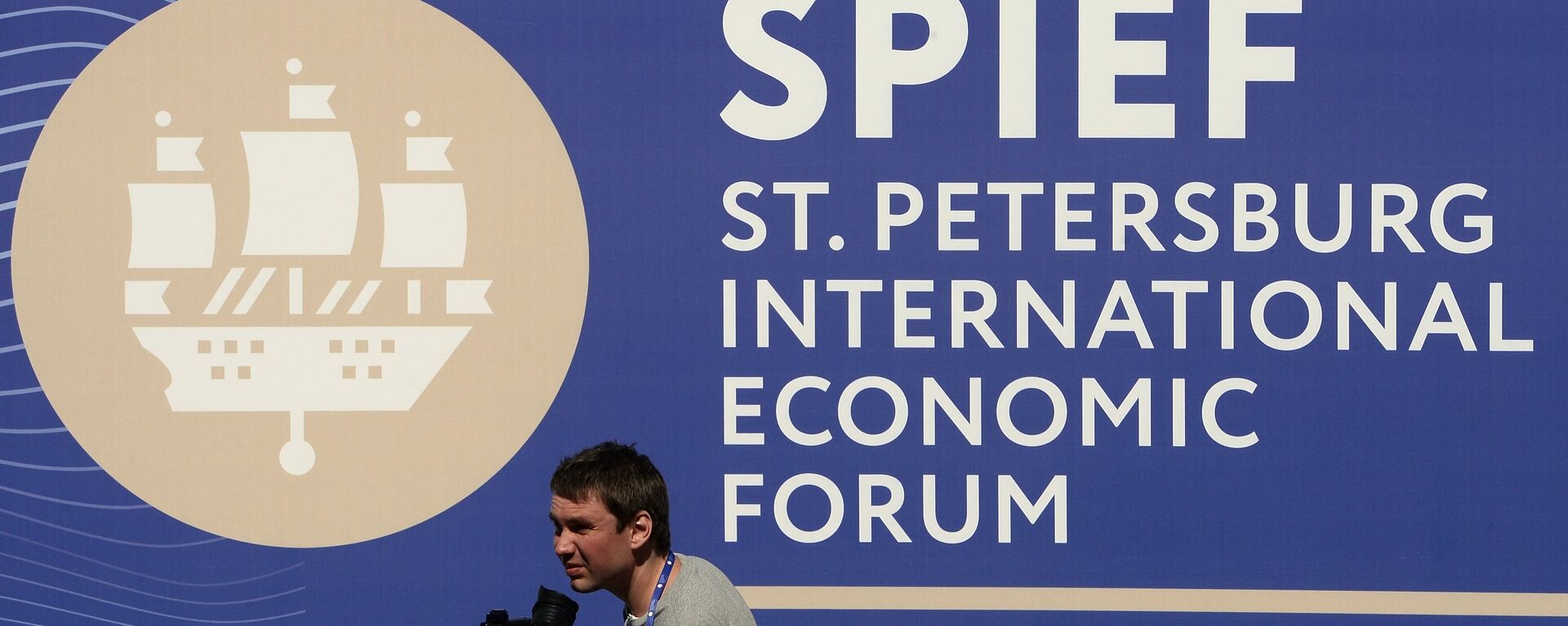https://sputnikglobe.com/20220401/iran-wants-to-trade-with-russia-in-national-currencies-deputy-head-of-central-bank-tells-sputnik-1094391434.html
Iran Wants to Trade With Russia in National Currencies, Deputy Head of Central Bank Tells Sputnik
Iran Wants to Trade With Russia in National Currencies, Deputy Head of Central Bank Tells Sputnik
Sputnik International
Moscow took a major step toward breaking the hegemony of the US dollar in global trade this week after asking countries that have sanctioned Russia to pay for... 01.04.2022, Sputnik International
2022-04-01T11:56+0000
2022-04-01T11:56+0000
2022-10-19T18:40+0000
iran
russia
business
https://cdn1.img.sputnikglobe.com/img/102183/96/1021839615_0:183:3505:2154_1920x0_80_0_0_5989dad90f9bfe44e628e43eb4afe793.jpg
Iran would like to conduct trade with Russia using the two countries' national currencies - the ruble and the toman, and agreements on this matter already exist, Iranian Central Bank Vice Governor Mohsen Karimi has said.Trade turnover between Russia and Iran hit a new record in 2021, exceeding the equivalent of $4 billion, with Russian exports to Iran accounting for over $3 billion of this figure, and imports from the Islamic Republic reaching $967.3 million, a 21.4 percent jump compared to the previous year.During a two-day visit to Moscow in January, Iranian President Ebrahim Raisi said that the two countries had discussed monetary and banking issues, and agreed to remove trade barriers to increase trade to the equivalent of $10 billion a year. Nearly 80 percent of trade between Russia and Iran consists of agricultural products, with Russia exporting grains and oilseeds, and importing Iranian vegetables and fruits, dried fruits and nuts, which are valued for their high quality and lack of use of potentially harmful GMOs.Russian officials have spent years negotiating with allies and partners on trade in national currencies. The crisis in relations with the West sparked by Moscow's military operation in Ukraine gave this development new impetus, with trade partners in Asia, Africa and Latin America tapped for discussions on the issue.Russian Foreign Minister Sergei Lavrov and his Iranian counterpart Hossein Amir Abdollahian confirmed the two countries' desire to strengthen cooperation in all areas, notwithstanding Western sanctions, on Wednesday after meeting in Tunxi, China on the sidelines of a regional security conference.The Islamic Republic knows a thing or two about how to use sanctions pressure to its advantage, becoming the largest industrial power in the Middle East, and creating a host of domestic economic sectors normally reserved for much larger countries - such as defence electronics and aerospace technologies. Russian officials were forced to take similar steps in recent weeks after being cut off from a broad assortment of Western goods ranging from machine tools and electronics to vehicle components, computer equipment, and more.
https://sputnikglobe.com/20220401/iran-plans-to-participate-in-2022-stpetersburg-international-economic-forum---organisers-1094390547.html
iran
Sputnik International
feedback@sputniknews.com
+74956456601
MIA „Rossiya Segodnya“
2022
News
en_EN
Sputnik International
feedback@sputniknews.com
+74956456601
MIA „Rossiya Segodnya“
Sputnik International
feedback@sputniknews.com
+74956456601
MIA „Rossiya Segodnya“
iran, business
Iran Wants to Trade With Russia in National Currencies, Deputy Head of Central Bank Tells Sputnik
11:56 GMT 01.04.2022 (Updated: 18:40 GMT 19.10.2022) Moscow took a major step toward breaking the hegemony of the US dollar in global trade this week after asking countries that have sanctioned Russia to pay for Russian natural gas in rubles. Iran officially switched from the dollar to the euro for its foreign trade in 2018.
Iran would like to conduct trade with Russia using the two countries' national currencies - the ruble and the toman, and agreements on this matter already exist, Iranian Central Bank Vice Governor Mohsen Karimi has said.
"The relevant agreements and opportunities already exist. Iran would like to use them to conduct trade operations with Russia in rubles and tomans," Karimi told Sputnik on Friday.
Trade turnover between Russia and Iran hit a new record in 2021, exceeding the equivalent of $4 billion, with Russian exports to Iran accounting for over $3 billion of this figure, and imports from the Islamic Republic reaching $967.3 million, a 21.4 percent jump compared to the previous year.
During a two-day visit to Moscow in January, Iranian President Ebrahim Raisi
said that the two countries had discussed monetary and banking issues, and agreed to remove trade barriers to increase trade to the equivalent of $10 billion a year.
"The two countries can take steps to break the dominance of the dollar over monetary and banking relations and trade with the national currency," Raisi said during his visit.
Nearly 80 percent of trade between Russia and Iran consists of agricultural products, with Russia exporting grains and oilseeds, and importing Iranian vegetables and fruits, dried fruits and nuts, which are valued for their high quality and lack of use of potentially harmful GMOs.
Russian officials have spent years negotiating with allies and partners on trade in national currencies. The crisis in relations with the West sparked by Moscow's military operation in Ukraine gave this development new impetus, with trade partners in Asia, Africa and Latin America tapped for discussions on the issue.
Russian Foreign Minister Sergei Lavrov and his Iranian counterpart Hossein Amir Abdollahian confirmed the two countries' desire to
strengthen cooperation in all areas, notwithstanding Western sanctions, on Wednesday after meeting in Tunxi, China on the sidelines of a regional security conference.
The Islamic Republic knows a thing or two about how to use sanctions pressure to its advantage, becoming the largest industrial power in the Middle East, and creating a host of domestic economic sectors normally reserved for much larger countries - such as defence electronics and aerospace technologies. Russian officials were forced to take similar steps in recent weeks after being cut off from a broad assortment of Western goods ranging from machine tools and electronics to vehicle components, computer equipment, and more.



